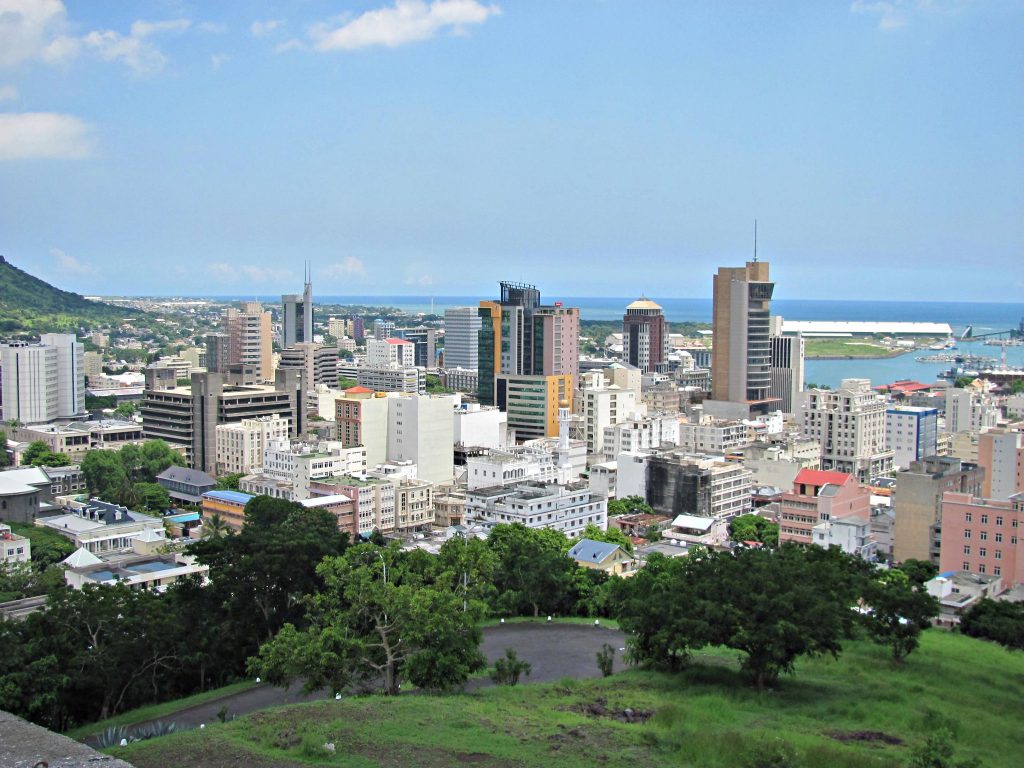Ibrahim Malleck, Managing Partner, Ebonia Capital
The decision of the EU to put Mauritius on its list of Third Countries having strategic deficiencies in their Anti-Money Laundering and Combatting the Financing of Terrorism (AML/CFT) framework could hardly have come at a worse time. With the world economy at a standstill due to Covid-19, the EU decided to act on the Financial Action Task Force (FATF) February decision to grey-list Mauritius and hit it hard. The EU did not give Mauritius the time to put up a case.
The country cannot afford to wake up on October 2nd, 2020, and be officially ‘’blacklisted’’. All local stakeholders are committed to working towards the implementation of any pending issues, with the hope that the FATF recognises Mauritius’ efforts, thus sending a clear message to the EU not to blacklist the country. Unfortunately, it has very limited time to convince its international partners.
EU blacklisting and the FATF recommendations
To put things into context, Mauritius’ strong legal environment, the absence of Foreign Exchange Controls, and an educated and bilingual workforce have helped propel the Financial and Insurance sector (banks, non-bank financial institutions and offshore management companies) to third place in terms of its contribution to the domestic economy. The sector contributes about 12% of GDP – within which Global Business contributes 6% of GDP-, and employs close to fourteen thousand people. It has become a pillar of the economy and a blacklisting, compounded by the pandemic blow on the tourism sector, would have a devastating impact on the international reputation of Mauritius, as well as on the domestic economy.
Both the decision, as well as the timing of the blacklisting, are open to debate. Although the list has to be ratified by the European Parliament on October 1st, 2020, Mauritius is already starting to feel the initial backlash of being grouped together with a number of countries with a much longer list of non-fully compliant FATF recommendations ranging from 22 to 39 compared with only 5 for Mauritius.
The country cannot afford to wake up on October 2nd, 2020, and be officially ‘’blacklisted’’.
The FATF, via its regional body the Eastern and Southern Africa Anti-Money Laundering Group (ESAAMLG), released a Mutual Evaluation Report in September 2018 which highlighted twenty-one Technical Compliance Issues (total of 40 assessed). Subsequently, in September 2019, nineteen of these were revised, clearly showing the progress that Mauritius was making in addressing the underlying issues. Importantly, Mauritius is largely compliant on three of the five compliance recommendations and partially compliant on the remaining two. There is no recommendation whereby it is fully non-compliant.
Supervision and non-financial business and professions
Interestingly, the five points recently raised by the Financial Action Task Force focus on the ability of stakeholders to carry out effective risk-based supervision, proper anti-money laundering investigations, access to information on beneficial owners, and the lack of targeted financial sanctions related to terrorism and proliferation financing. No direct mention is made of either the banking regulator or Offshore Management Companies, especially in terms of the way they carry out business and apply existing anti-money laundering and financing of terrorism guidelines. It is noteworthy that the country already has a robust legal framework (Financial Intelligence and Anti-Money Laundering Act) which underlines the parameters and provides guidance to all stakeholders in terms of combatting financial crime.
In fact, the fight against financial crime is constantly gaining momentum internationally and over the past decade, a number of banks and other institutions have been heavily fined by the likes of Office of Foreign Assets Control (US Department of Treasury) and the EU, leading to a complete revamp of their internal compliance and anti-money laundering structures. With the implementation of the Common Reporting Standards (CRS) to fight tax evasion, global frameworks have been tightened to prevent tax leakages in addition to illicit flows. The Mauritius banking sector is considered to be largely compliant, with the FATF clearly highlighting weaknesses mostly with the non-financial business activities (Designated Non-Financial Business and Professions – DNFBP). However, it seems that banks which have been particularly diligent in building up a robust anti-money laundering and combating the finance of terrorism framework, stand to be among the initial losers.
Reduced foreign exchange flows and the macro-economy
Already, the intention of the EU to place Mauritius on their blacklist prevents European Development Finance Institutions (DFIs) such as Proparco, CDC and Norfund, to use Mauritius as an intermediary jurisdiction for onward investments into Africa. Mauritius has been a preferred choice for these institutions for a number of years given the country’s political and economic stability and its strong rule of law. The country will no longer be able to host such structures as things stand.

Considering that other stakeholders such as Private Equity firms and Impact Investors also set-up their Fund structures in Mauritius, often to invest alongside these DFIs across Sub-Saharan Africa, the country risks facing a significant reduction of business in the Offshore sector. Coming at a time when Mauritius is still re-inventing itself after the re-negotiation of its Double Taxation Avoidance Agreement (DTAA) with India which reduced the incentives for investors to route funds through Mauritius, the hope of an ‘’Africa Strategy’’ to boost this sector has suddenly faded. This is all the more worrying given the current post-Covid environment: unemployment is expected to rise to 17% over the coming 12 months and the country can ill afford lay-offs of specialised staff (accountants, fund administrators, lawyers) who form the backbone of Mauritius Global Business sector.
The potential impact on banks is also very worrying. There are early indications that local banks are already facing Enhanced Due Diligence on a number of their transactions with European counterparties [1]. This makes it more costly for correspondent banks to deal with Mauritius and could put pressure on relationships built over a number of years, even decades. Mauritius has built its economic success on the export of goods and services and it simply cannot afford to put its correspondent banking relationships at risk. It is worth noting that any reduced flows from the Global Business sector will also negatively impact banks in terms of Foreign Exchange flows and deposits. Indeed, the Bank of Mauritius has recently become a net seller of USD in the market, with commercial banks managing their foreign exchange positions very tightly.
Any reduced flows from Global Business, coming at a time when Tourism inflows are close to zero, will compound the Current Account deficit and push the country’s overall Balance of Payment into the red.
It is vital to grasp the macro-economic impact that Mauritius could be facing. The island operates under a freely-floating currency regime, and over the past decade, Mauritius has benefited from substantial USD liquidity. Any reduced flows from Global Business, coming at a time when Tourism inflows are close to zero, will compound the Current Account deficit and push the country’s overall Balance of Payment into the red. Mauritius will lose an important buffer which has also helped the country’s international reserves and rupee stability. This can only lead to macro-economic instability.
The way forward
The Government, together with financial regulators and other stakeholders, have come together to find ways to prevent any blacklisting in October. In the recent Budget, the Government has clearly stated its commitment to complete the remaining five FATF recommendations by September 2020 and to complement and strengthen the existing legislative framework through a new Anti-Money Laundering and Combating the Finance of Terrorism (Miscellaneous Provisions) Bill, which is to be presented to the House on 23 June 2020. This should send a clear signal to the FATF (and the EU), that Mauritius has taken a dynamic approach to addressing their recommendations and is looking to be proactive and address areas of concern in a timely manner.
Mauritius is facing a very steep uphill battle. By not being stringent enough, especially around risk-based regulation and monitoring, a gap seems to have been exploited by international regulators to take the country to task. Mauritius has worked hard over the past decade to build its reputation as an international financial jurisdiction and to comply with international taxation and financial regulations such as the Common Reporting Standard and the Base Erosion Profit Shifting. The risk of being branded together with countries considered to be fragile states with serious structural deficiencies is serious indeed. The country’s reputation is at stake. The immediate focus must be to limit any fall-out and do everything possible to avoid being blacklisted.
Rethinking economic diplomacy
However, Mauritius must also ask itself whether it acted quickly enough, particularly on the economic diplomatic front. There was a time where Mauritius was one of the drivers within the ACP when it came to the Sugar Protocol and Multi-Fibre Agreement. Now, as the country aims to attain High-Income country status by 2030, it will need to operate differently. This requires judicious diplomatic lobbying, clear internal policies (understood and correctly applied by all relevant stakeholders) coupled with accountabilities, as well as medium to long term strategies. And the island needs, once and for all, to better monitor sectors such as Gambling and Real Estate, where the risk of AML remains high. It should also apply a stronger risk-based approach across the Global Business industry. The onus is on the relevant regulators to make this happen.
Mauritius has to demonstrate that it is doing the right thing to sustain its reputation and relationships with its international partners. There is no other option.
Mauritius is at crossroads. The global impact of the Coronavirus, coupled with the potential threat of a blacklisting by the EU, should force Mauritius to take some difficult structural decisions. Financial Crime continues to be closely monitored internationally and countries are increasingly expected to tackle issues in a dynamic manner. Mauritius has to demonstrate that it is doing the right thing to sustain its reputation and relationships with its international partners. There is no other option.
[1] evidence at this stage is anecdotal but the author’s feedback from local banks suggests that enhanced due diligence is already starting to affect transactions with the European Union.
Ibrahim Malleck is a Managing Partner at Ebonia Capital a trade and corporate finance advisory firm based in Mauritius. With more than 25 years of leadership experience in corporate banking in Mauritius and across the Middle East, he has worked, among others, for the Mauritius Commercial Bank Ltd, Standard Bank Ltd. and HSBC Ltd. In 2019, he founded Ebonia Capital to provide financial and risk advisory services, as well as funding solutions to entities in Mauritius and across East Africa. Ibrahim has a Masters in International Trade and Finance from Lancaster University.
Charles Telfair Centre is an independent nonpartisan not for profit organisation and does not take specific positions. All views, positions, and conclusions expressed in our publications are solely those of the author(s).

